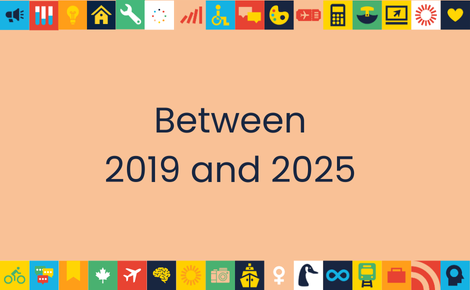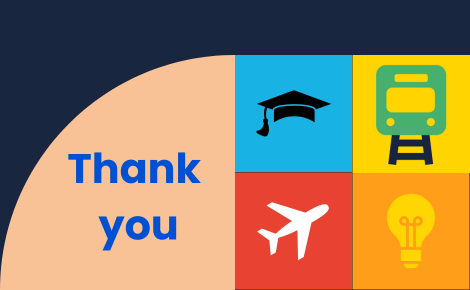Opinion Piece by John Baker
International study and work experiences nurture the durable skills that students — and Canada — need for the future.
John Baker
It’s no secret that our world, our society, our economy, and our workforce are undergoing rapid change.
Technological advancements and automation are continually reshaping the landscape of work and reframing our understanding of what it means to be job-ready.
As we live through this Fourth Industrial Revolution, we often hear about “soft skills” — those non-technical capabilities like self-sufficiency, teamwork, empathy, relationship-building, networking, communication and problem-solving.
I’ve found that these skills are often undervalued and overlooked in favour of the immediate demands of technical expertise. Even the term “soft skills” undermines the true importance and resilience of these capabilities. “Soft” implies that they are gentle, easily acquired, perhaps even unnecessary fluff.
Nothing could be further from the truth.
Let’s call them what they really are: durable skills — critical for success in any field, regardless of what life throws our way. These are skills our next generation of workers and leaders need.
To be clear: traditional technical, so-called “hard skills” are still crucial, however they are not sufficient on their own.
According to a LinkedIn survey, 57% of leaders now consider durable skills more important than hard skills. And a study by McKinsey & Company suggests that by 2030, as many as 375 million workers will need to switch occupational categories due to automation.
The ever-increasing pace of technological change means many technical skills become obsolete within just a few years, requiring people to constantly upskill or reskill just to remain relevant.
Durable skills, on the other hand, stand the test of time.
They allow people to bend, not break, as they adapt to new working environments. As the job market rapidly evolves and reinvents, I’ve seen that employers are placing greater value on versatile employees with initiative, drive, confidence, and agency.
At D2L, we seek employees that can constantly adapt, learn, thrive in diverse environments, effectively collaborate, and solve complex problems — skills that machines cannot easily replicate.
Building Durable Skills
Over the years, I’ve found that real-life interactions, or lived experiences, are critical to cultivating these durable skills. When I founded D2L in 1999 as a third-year engineering student, I set out to create a learning company that would have a ripple effect from one person to the next.
Over the past two decades, I’ve been fortunate to have had many international study and work experiences. I’ve been able to grow my durable skills by building connections with customers and communities around the world – bringing back different ideas and viewpoints to make our business stronger.
This has included:
- My trip to a resource-constrained classroom in India, where I learned that students had more frequent, consistent access to mobile phones and Wi-Fi than computers. I realized that we could find a way to reach a broader segment of learners on a mobile browser, regardless of their location or bandwidth.
- Travelling to Brazil, I had the opportunity to better understand the impact personalizing the recognition of prior learning for women living in poverty, and the impact of giving them faster and more flexible pathways to finish a college experience to get a job – not only does it change their life, it breaks the cycle of poverty for the next generation.
- Visiting a small Colombian schoolroom and witnessing how school children had gained the title of teacher by helping their community learn how to use technology to solve problems – they were acting with care and urgency and not waiting for someone else to fix the problem.
These trips helped me connect with new groups of people and, ultimately, build better, more accessible, equitable and inclusive technology products. And these experiences inspired me – lighting a spark that fanned into a burning fire.
Canada and Beyond
I believe both international study and work experiences offer an important platform for nurturing the durable skills that students and Canada need for the future. That said, research shows that Canada’s undergraduates are less likely to participate in international study abroad programs when compared with countries like France, Australia, and the United States.
Fortunately, we are gaining ground. Since 2019, the Government of Canada has been funding a national outbound student mobility pilot program, Global Skills Opportunity (GSO).
So far, GSO has helped more than 5,000 Canadian post-secondary students gain valuable global skills through international study and work experiences. I’ve been able to meet and speak to a handful of GSO Alumni — and the impact these experiences have had on their outlook and on their lives is evident. Students return with new confidence, a spark, a willingness to lead and a desire to make a difference in their own communities.
What’s even more encouraging is that the vast majority of participants are from groups that are traditionally underrepresented in international education opportunities – students with a disability, Indigenous students, or those from low-income backgrounds.
Let’s work towards making GSO’s national program a permanent fixture upon its renewal –ensuring that Canadian students have the opportunity to equip themselves with the lasting, durable skills needed to confront the challenges of the future.
John Baker is CEO and Board Chair of D2L. He sits on the Governing Council of the Social Sciences and Humanities Research Council of Canada, is a Member (Entrepreneurs’ Circle) of the Business Council of Canada, Business Higher Education Roundtable, Past Chair of the Board of Communitech, and is a board member of Canada’s National Ballet School.




